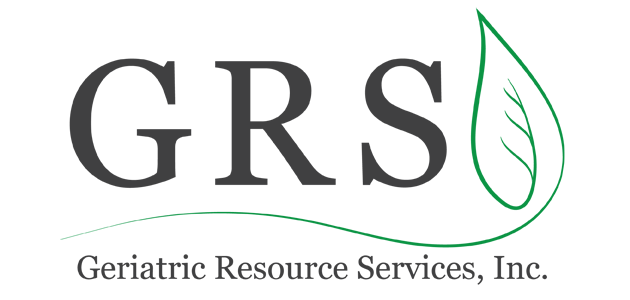Aging Well in the Upstate
Helpful tips for family caregivers
April/May 2010
We are surrounded by choices. This month is National Health Care Decisions Day. Make some good choices for you and your loved one.
- Avoiding crises with congestive heart failure
- Aging and the self-fulfilling prophecy
- What is an advance directive?
Avoiding crises with congestive heart failure
A heart weakened by congestive heart failure (CHF) has a hard time pumping blood around the body. As the circulation slows down
- the blood returning to the heart backs up, causing “congestion” (swelling) in the tissues;
- the kidneys can’t efficiently rid the body of water and salt, causing water gain in the legs, ankles, feet, and abdomen.
The swelling that results from this retention of fluid is called “edema.” It adds pounds to the body’s weight. And any extra weight means extra work for an already stressed heart. When this cycle of fluid build up spirals out of control, it can trigger a medical emergency and the need for hospitalization.
To avoid a crisis, check for these signs EVERY DAY:
- Sudden weight gain or loss. Have your loved one weigh first thing in the morning, right after urinating and before drinking or eating. Ask your doctor what is an acceptable change from one day to the next and how many pounds is too much. Know when you need to call the office.
- Swelling in the abdomen. Check how clothing fits; look for tightness, tenderness, or bloating at the waist.
- Fatigue, shortness of breath. Note any complaints of weakness or desire to reduce activity.
If you observe any one of these symptoms, contact your family member’s doctor immediately for guidance. The doctor may recommend changes in the day’s diet or fluid intake, or may modify other aspects of treatment.
Good communication with the doctor about symptoms that emerge at home is the simplest way to stay out of the ER!
Check with the doctor about other self-care activities that may help reduce the likelihood of edema. For example:
- Sitting or lying down with legs elevated to help blood flow to the heart.
- Wearing specialized stockings to help minimize fluid buildup in the legs.
- Lightly stroking or massaging legs, or doing simple exercises, to get the fluid moving.
- Reducing salt intake.
Return to top
Aging and the self-fulfilling prophecy
“Whether you think you can, or you think you can’t—you’re right.”
—Henry Ford
It turns out this truism applies to the ways we perceive the aging process itself. Research shows that older adults who view aging as a time of continued learning and development are physically more resilient. They seem to weather a setback and regain their mobility and independence more readily. They stay healthier and live longer than their peers who view aging primarily as a time of decline.

As a society we tend to hold aging in a negative light. But studies have found that advanced years do indeed bring many benefits. When compared to younger generations, for instance, older adults generally are more able to
- focus on the positives
- tune out the negatives
- relax and accept who they are
The wisdom of aging may be that older adults recognize life is too short to “sweat the small stuff.” And with accumulated years, they have developed more coping skills for life’s inevitable rough spots.
Get this self-fulfilling prophecy working in your loved one’s favor! Try asking some of these questions to help him or her identify the special strengths of aging:
- If you were suddenly 20 again, what skills or wisdom would you miss?
- What has helped you through hard times in the past? Look for ways to emphasize these skills or resources.
- What people, activities, or situations tend to leave you feeling positive? Consider ways to emphasize these resources. For many older adults, family and social interactions bring the greatest joy.
- What is the ‘gift’ in your situation right now? With aging, we frequently come to realize that in every situation the good coexists with the bad. Even people with incurable diseases can usually identify something positive they have learned as a result of their condition.
What is an advance directive?
What if your mother developed dementia? Are you legally entitled to make medical decisions for her? What if your father had a major accident? Do you know his treatment preferences?
An advance directive answers these questions. A directive is completed in “advance,” when a person is healthy. It enables them to guide their medical treatment even if they become unable to speak for themselves. (Doesn’t that sound like a good idea for you, too?)
Advance directives typically have two parts:
- The medical power of attorney names a person to make health care decisions. Your family member identifies a person to be their health care “agent” or “proxy.” The agent has the responsibility to make medical decisions based on his or her understanding of your loved one’s wishes. This includes approving or disapproving any treatment.
- The living will provides instructions for health care. Your family member chooses what life-sustaining treatments he or she wants or doesn’t want, and under what conditions. This section also covers organ donation.
Advance directives are simple to complete. No attorney is necessary.
- Complete an advance directive for each state in which your loved one spends a lot of time. Free forms are available for all 50 states.
- Fill out and sign with witnesses, as specified.
- Give a copy of the completed directive to the primary physician, the person named as medical power of attorney, and interested family members. Keep a copy in the car, and desk or bedside table, too.
- Review the directive periodically with your family member. The health care agent may no longer be available, or be the best choice. Changes in health might add a new perspective and change your loved one’s instructions.
Return to top

